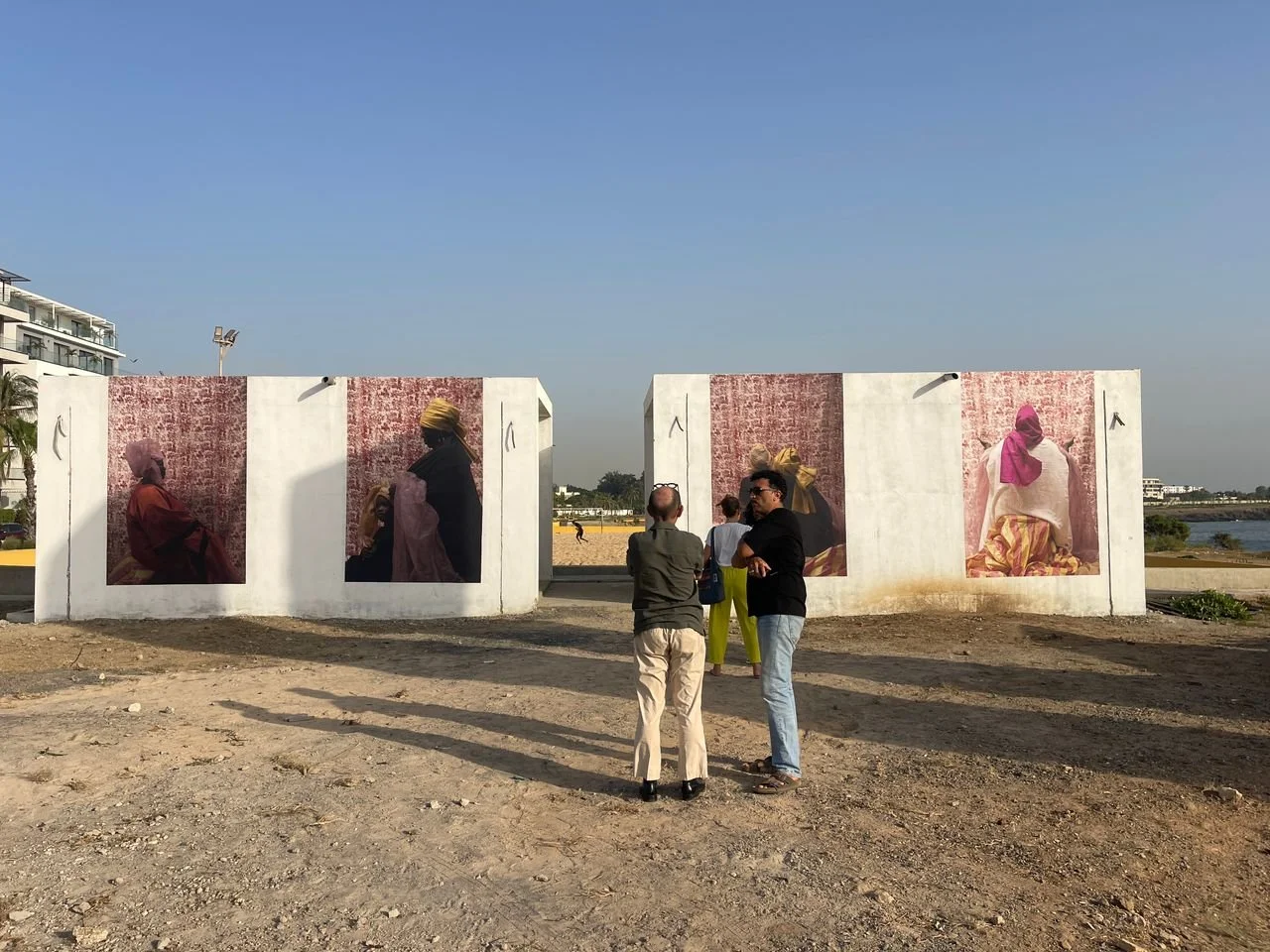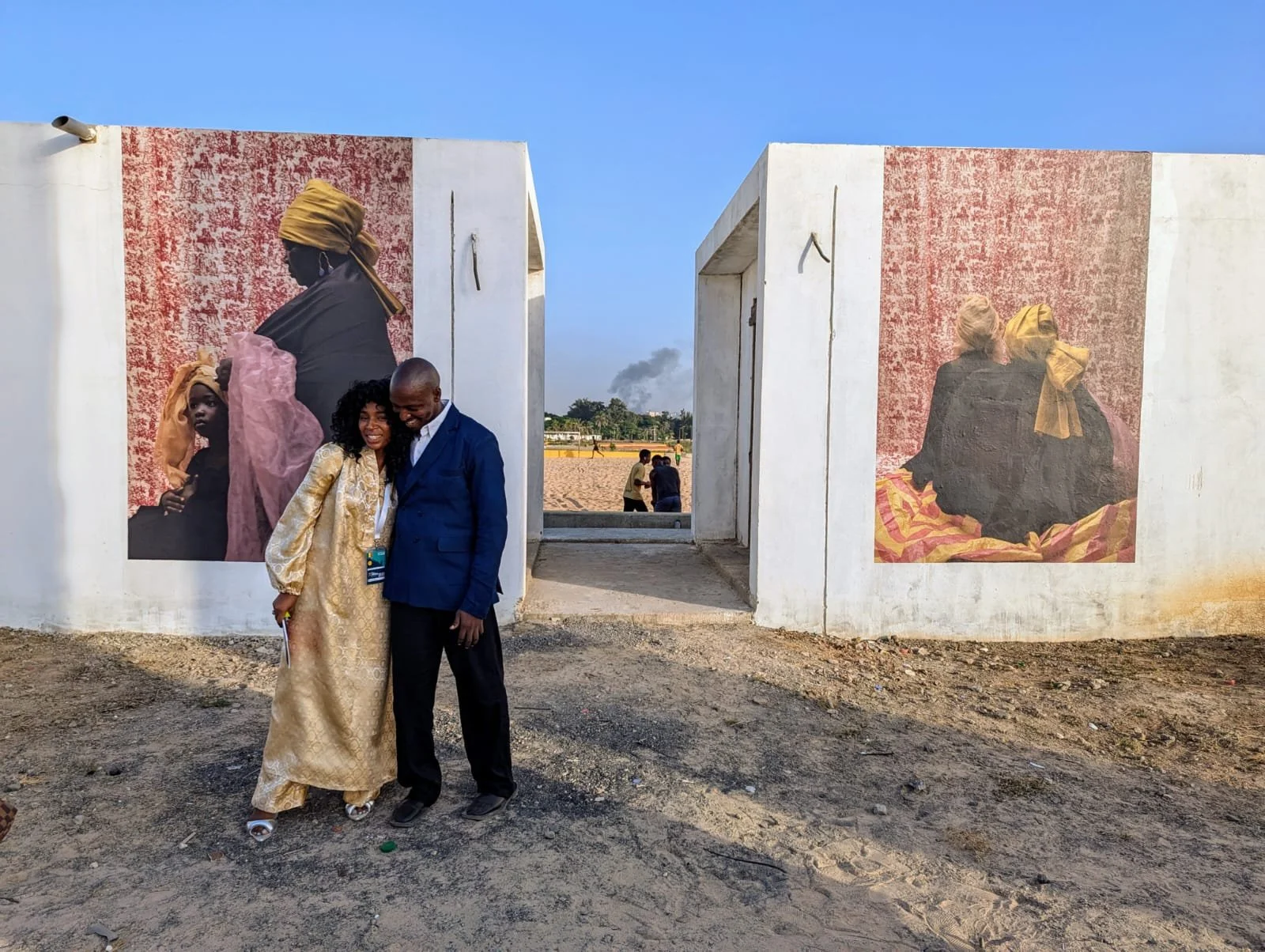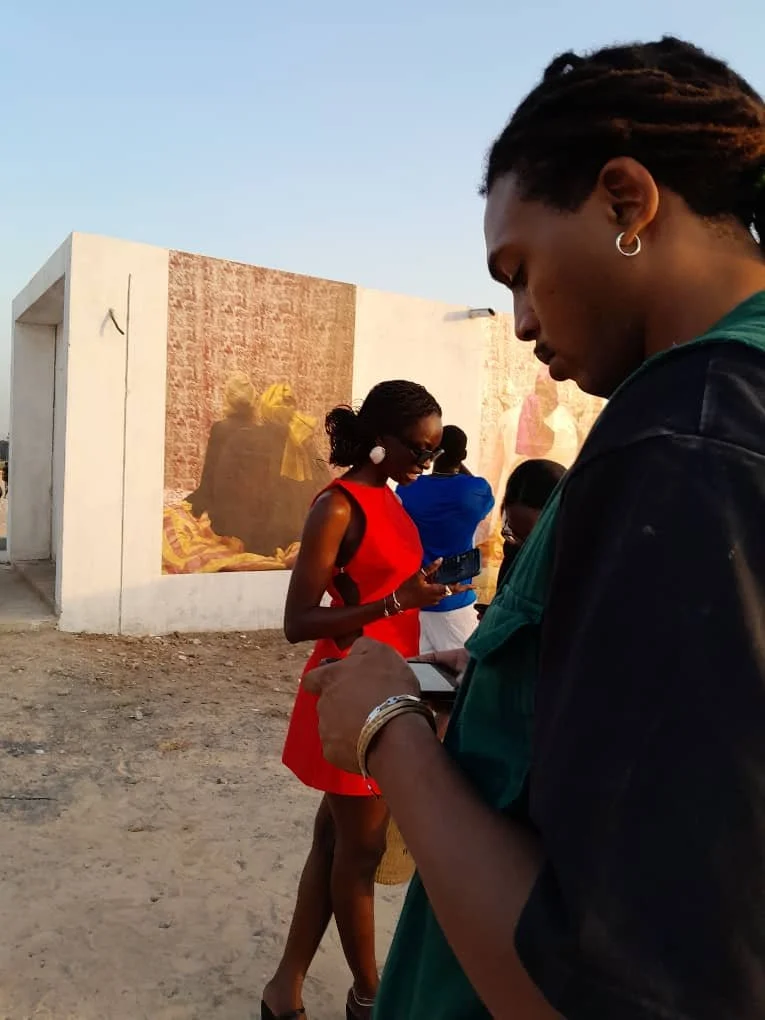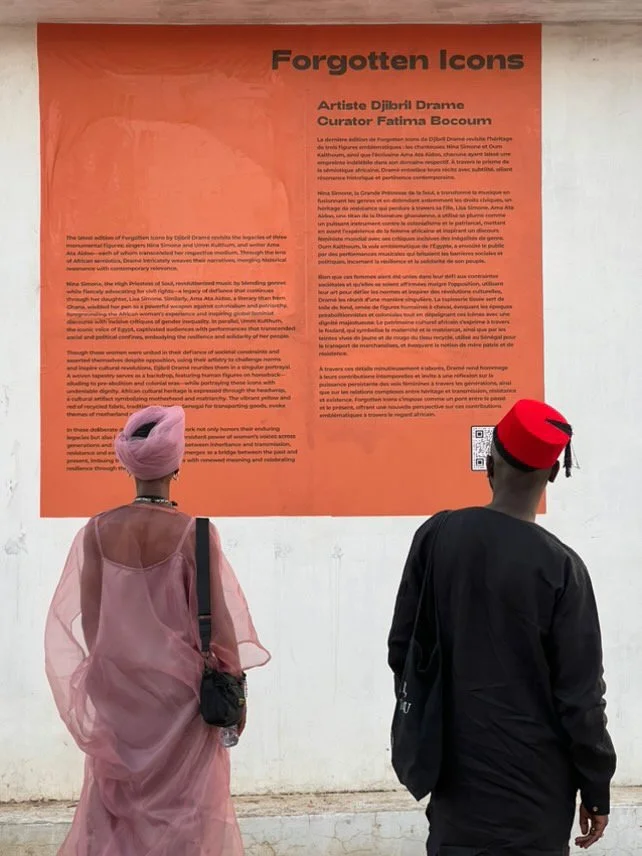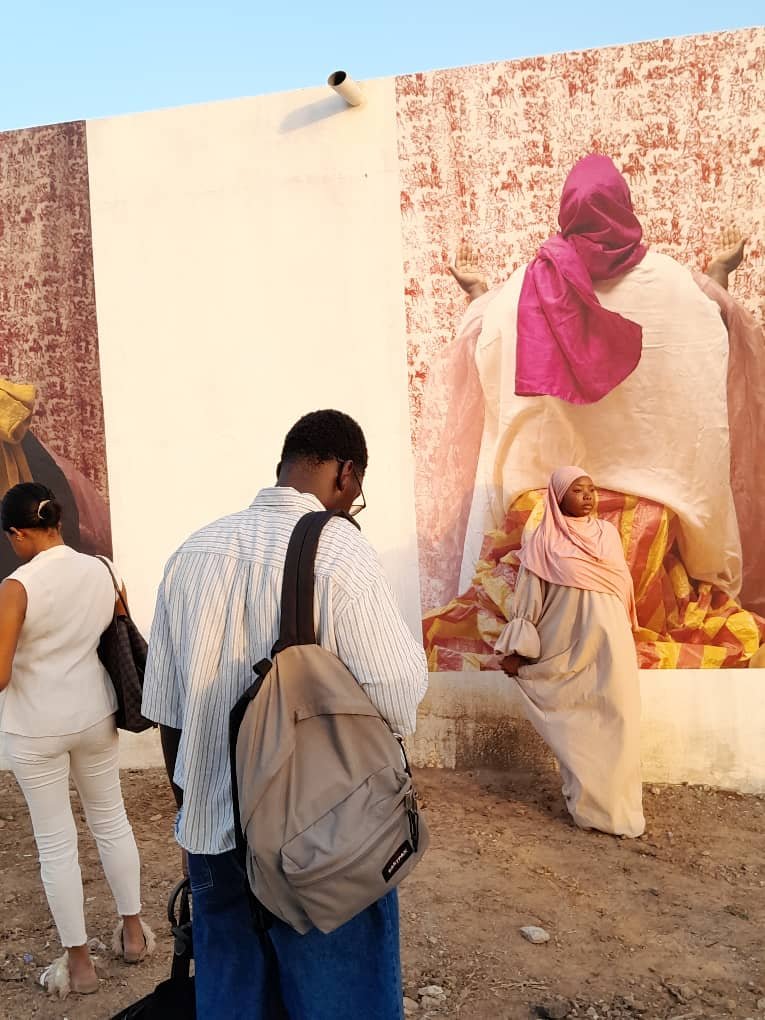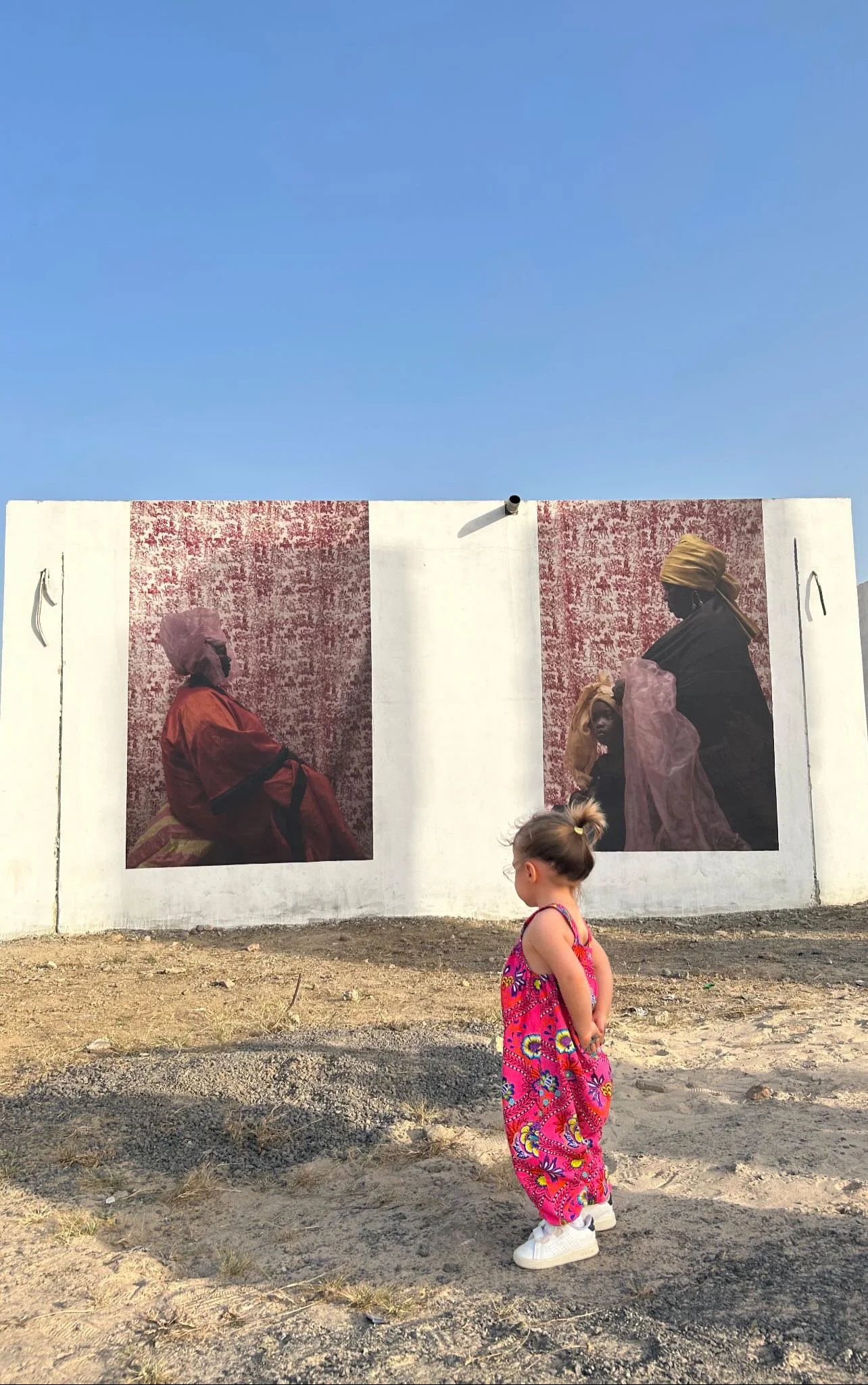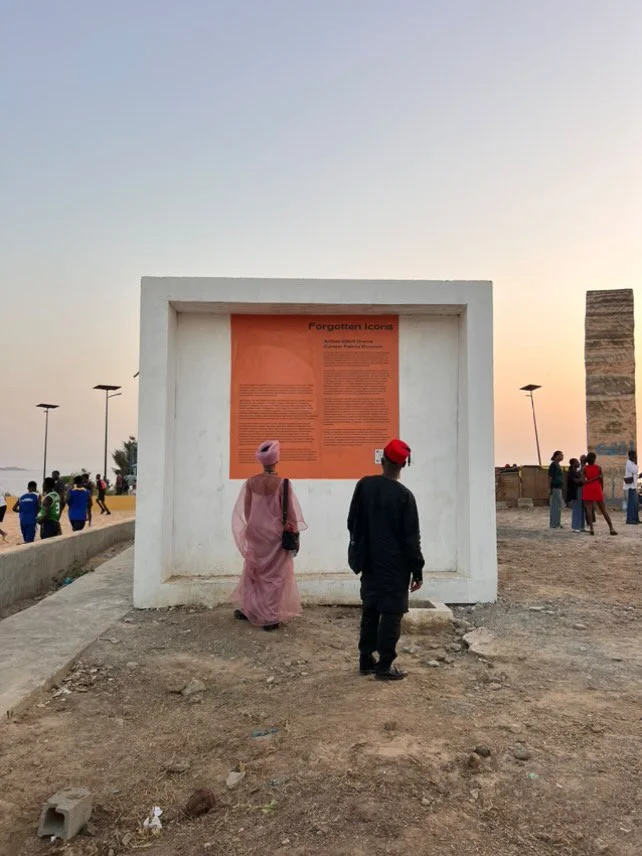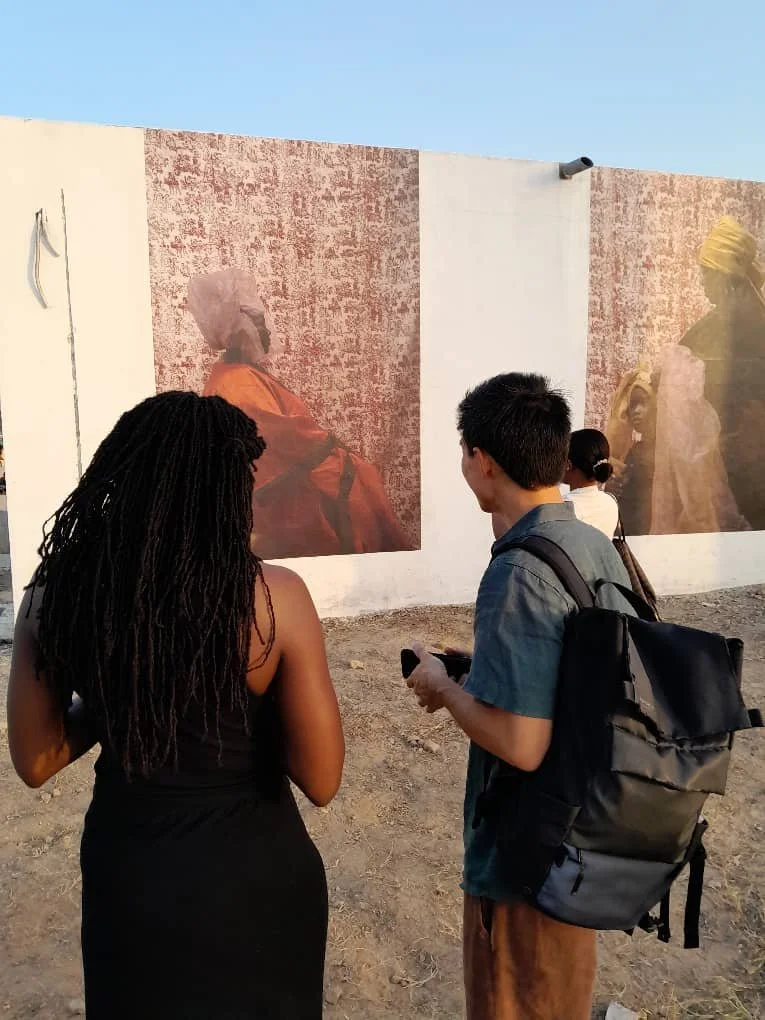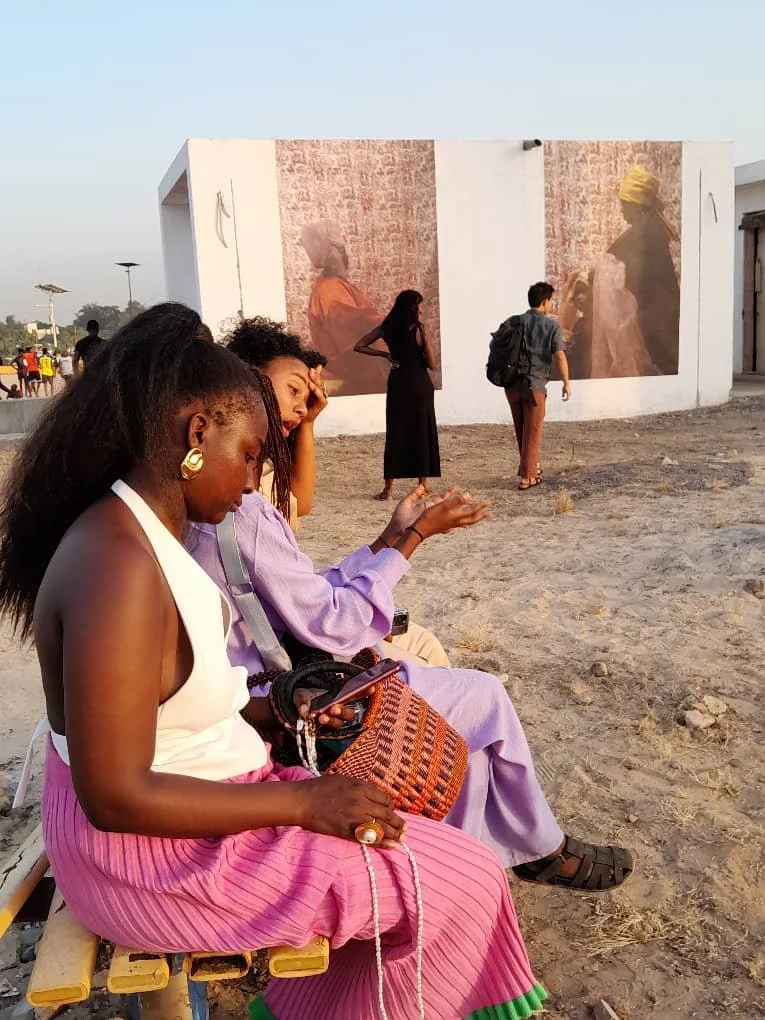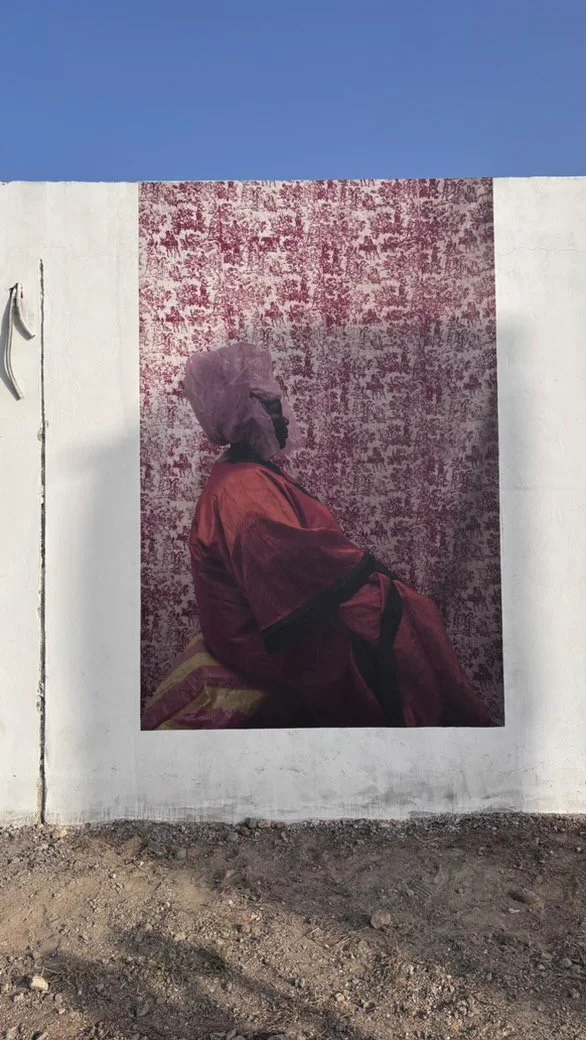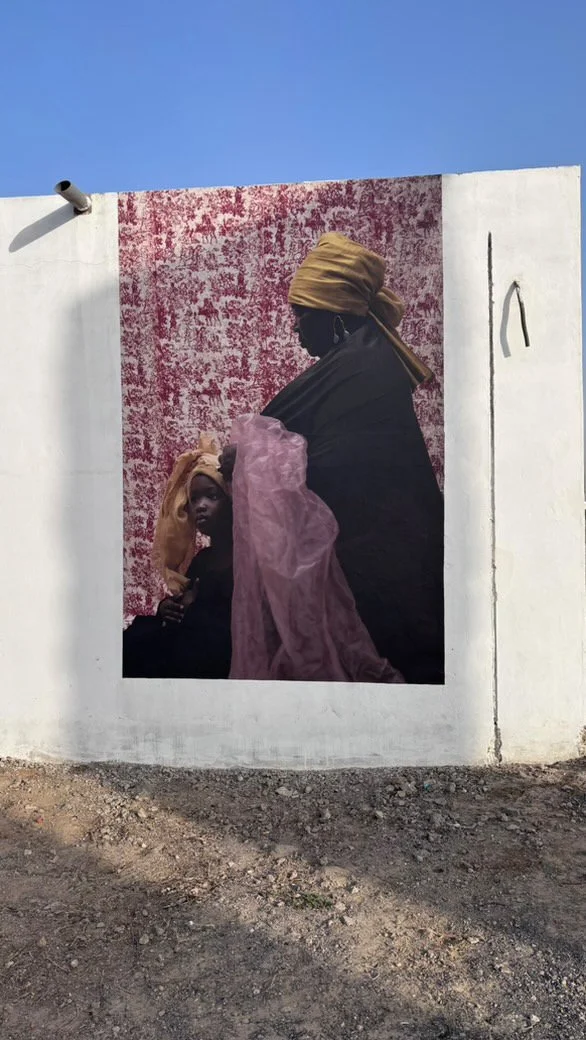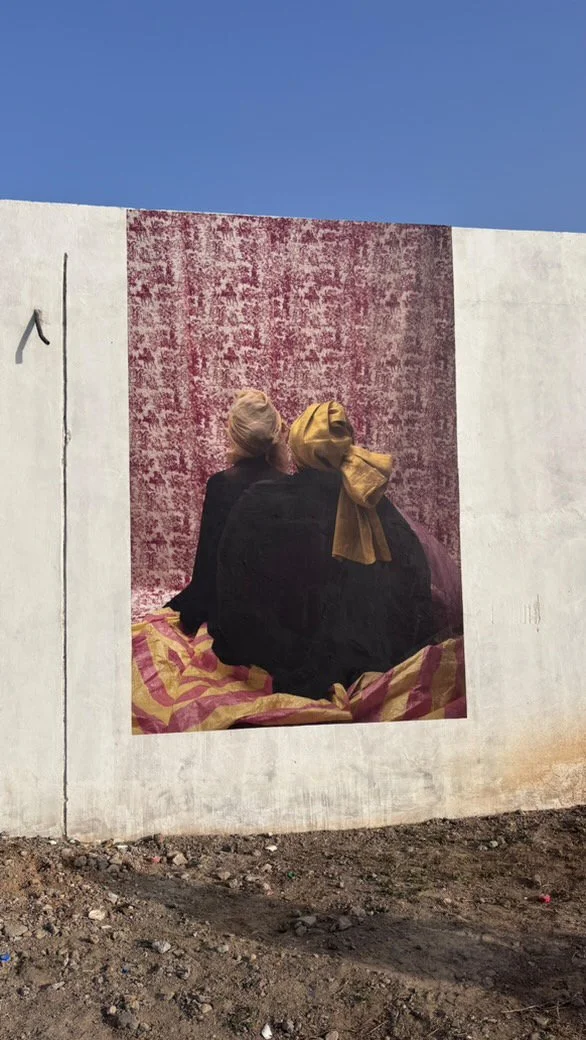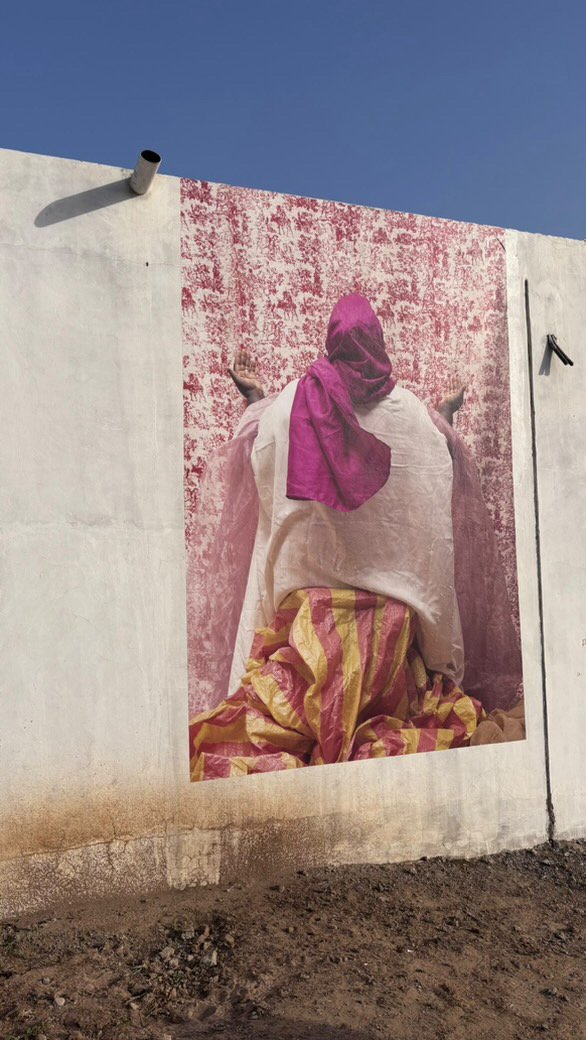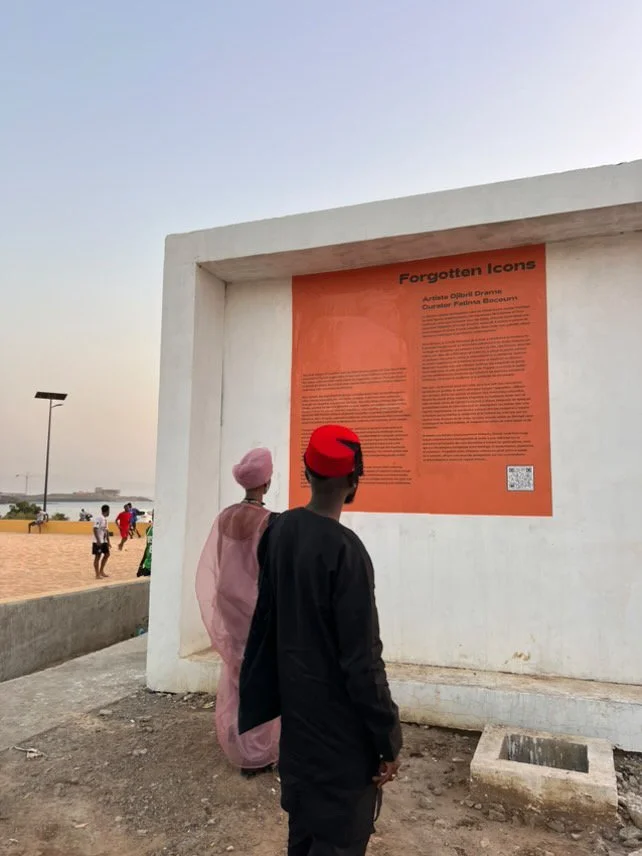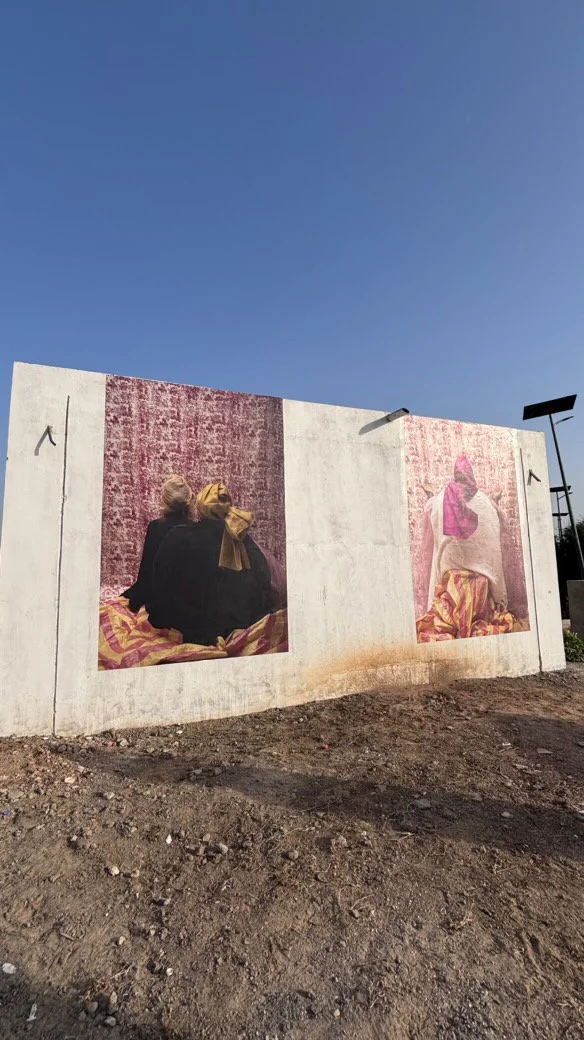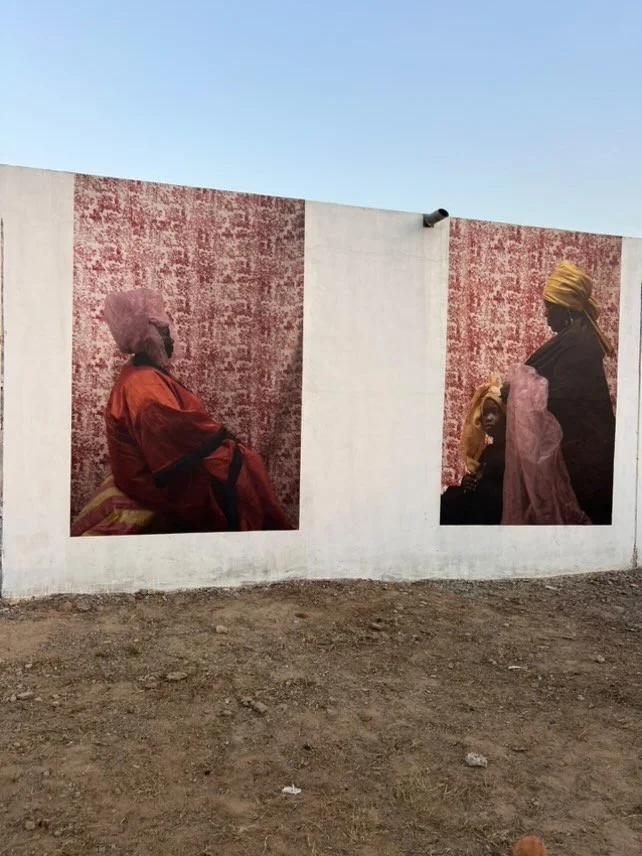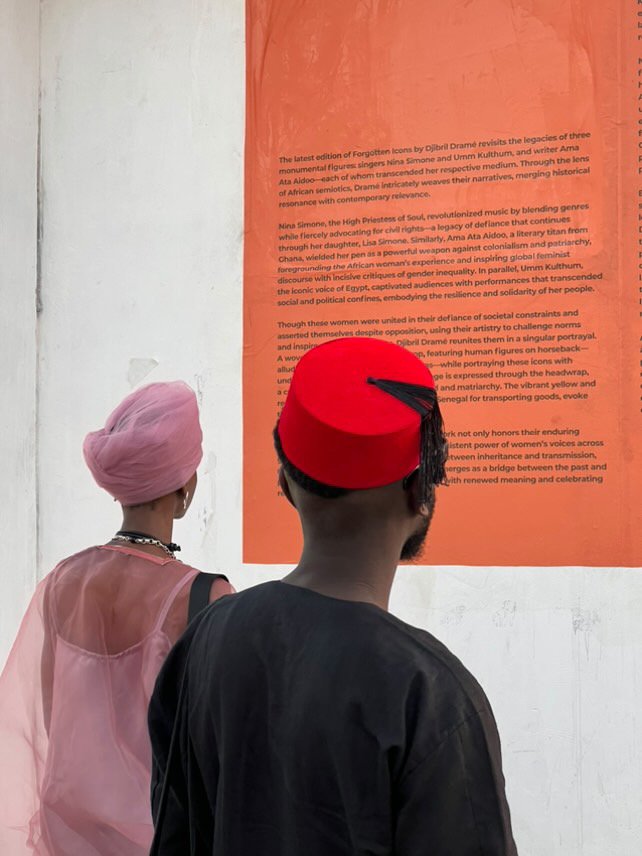Forgotten Icons (Icônes Oubliées)
Texte Curatorial
La dernière édition de Forgotten Icons de Djibril Dramé revisite l’héritage de trois figures emblématiques : les chanteuses Nina Simone et Oum Kalthoum, ainsi que l’écrivaine Ama Ata Aidoo, chacune ayant laissé une empreinte indélébile dans son domaine respectif. À travers le prisme de la sémiotique africaine, Dramé entrelâce leurs récits avec subtilité, alliant résonance historique et pertinence contemporaine.
Nina Simone, la Grande Prêtresse de la Soul, a transformé la musique en fusionnant les genres et en défendant ardemment les droits civiques, un héritage de résistance qui perdure à travers sa fille, Lisa Simone. Ama Ata Aidoo, une titan de la littérature ghanéenne, a utilisé sa plume comme un puissant instrument contre le colonialisme et le patriarcat, mettant en avant l’expérience de la femme africaine et inspirant un discours féministe mondial avec ses critiques incisives des inégalités de genre. Oum Kalthoum, la voix emblématique de l’Égypte, a envoûté le public par des performances musicales qui brisaient les barrières sociales et politiques, incarnant la résilience et la solidarité de son peuple.
Bien que ces femmes aient été unies dans leur défi aux contraintes sociétales et qu’elles se soient affirmées malgré l’opposition, utilisant leur art pour défier les normes et inspirer des révolutions culturelles, Dramé les réunit d’une manière singulière.
La tapisserie tissée sert de toile de fond, ornée de figures humaines à cheval, évoquant les époques pré-abolitionnistes et coloniales tout en dépeignant ces icônes avec une dignité majestueuse. Le patrimoine culturel africain s’exprime à travers le foulard, qui symbolise la maternité et le matriarcat, ainsi que par les teintes vives de jaune et de rouge du tissu recyclé, utilisé au Sénégal pour le transport de marchandises, et évoquant la notion de mère patrie et de résistance.
À travers ces détails minutieusement élaborés, Dramé rend hommage à leurs contributions intemporelles et invite à une réflexion sur la puissance persistante des voix féminines à travers les générations, ainsi que sur les relations complexes entre héritage et transmission, résistance et existence.
Forgotten Icons s’impose comme un pont entre le passé et le présent, offrant une nouvelle perspective sur ces contributions emblématiques à travers le regard africain.
Écrit par Fatima Bocoum (français)
